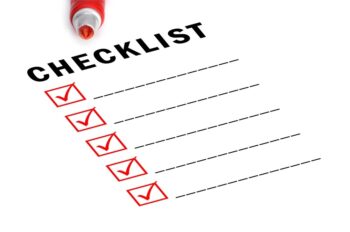Did you know that most confirmed data breaches involve the leveraging of weak, stolen, or default passwords? One of your practice’s frontline defenses for avoiding the phishing attacks and other cybercriminal schemes is effective password management. How well are you managing yours? Take this quiz from Michael J. Sacopulos, JD, founder and CEO of the Medical Risk … [Read more...] about Quiz: How well do you manage passwords?
Topics
3 steps to success for a new medical office manager
Dear Medical Office Manager: I've just been promoted to manager of a medical office. What should I do now to ensure success? Congratulations on your promotion! Here are three steps you can take to ensure success in your new role as a medical office manager: Get to know your team: Take the time to meet and build relationships with your staff. This will help you … [Read more...] about 3 steps to success for a new medical office manager
6 ways to dodge the dreaded performance review
Performance reviews: You don't like to do them, employees dread them and they may not be all that effective in improving work behavior. Here are five alternatives to an annual performance review. Regular feedback sessions: Instead of a once-a-year review, schedule regular feedback sessions throughout the year to discuss performance and provide feedback. These sessions … [Read more...] about 6 ways to dodge the dreaded performance review
Using patient portals to enhance communication and engagement
In today’s digital age, enhancing communication and engagement with your patients is more important than ever. One of the most effective tools at your disposal is the patient portal. This online platform can transform how you interact with patients, making communication more efficient and fostering a deeper level of engagement. Let’s explore how you can utilize patient portals … [Read more...] about Using patient portals to enhance communication and engagement
Make everyone welcome by improving accessibility and inclusivity in your medical office
Creating an accessible and inclusive medical practice is essential for providing high-quality care to all patients, regardless of their abilities or backgrounds. As a medical office manager, you play a crucial role in ensuring that your practice is welcoming and accommodating to everyone. Here are some practical steps you can take to improve accessibility and inclusivity in … [Read more...] about Make everyone welcome by improving accessibility and inclusivity in your medical office
Daily operations checklist for a medical office manager
By following this checklist, you can enhance patient satisfaction, support your team effectively, and create a professional and welcoming environment. Here's a detailed look at the key tasks you should focus on each day to keep your medical office running like a well-oiled machine. Verify Appointment Schedule and Ensure All Appointments Are Confirmed: Review the day's … [Read more...] about Daily operations checklist for a medical office manager
The temp is gunning for my job
By Lynne Curry Question: I love my job as a midsize medical clinic’s administrative manager. That’s why my husband and I agreed I’d take only a short six-week maternity leave, and he’d take the full two months his employer offered. When I told the managing physician, he thanked me profusely for my commitment. I diligently searched for the best temporary replacement, … [Read more...] about The temp is gunning for my job
5 reasons to pay for medical office staff education
Paid continuing education is one of the most popular perks you can offer your employees. Besides making your staff happier, paid upgrading and training also benefits the practice in at least five ways. Enhancing knowledge and skills: Continuing education and staff upgrading help employees to stay current with the latest advancements and trends in the healthcare industry. … [Read more...] about 5 reasons to pay for medical office staff education
How to focus on the important stuff
As a busy medical office manager, it's crucial to stay organized and focused on your important projects. Here are some specific tips to help you maintain focus in at the office: Prioritize Your Tasks: Identify your most critical tasks and prioritize them based on urgency and importance. This might include patient scheduling, billing, compliance, and staff management. … [Read more...] about How to focus on the important stuff
Our staff fell for a cyber attack
By Lynne Curry Question: Four of our staffers fell for a cyber attack last week. They opened an email attachment they thought originated from our HR department, which regularly emails policy updates to all staff. This email had the subject line: Changes to Vacation Policies. Even though we’ve trained our staff members not to click on suspicious emails, and certainly … [Read more...] about Our staff fell for a cyber attack









